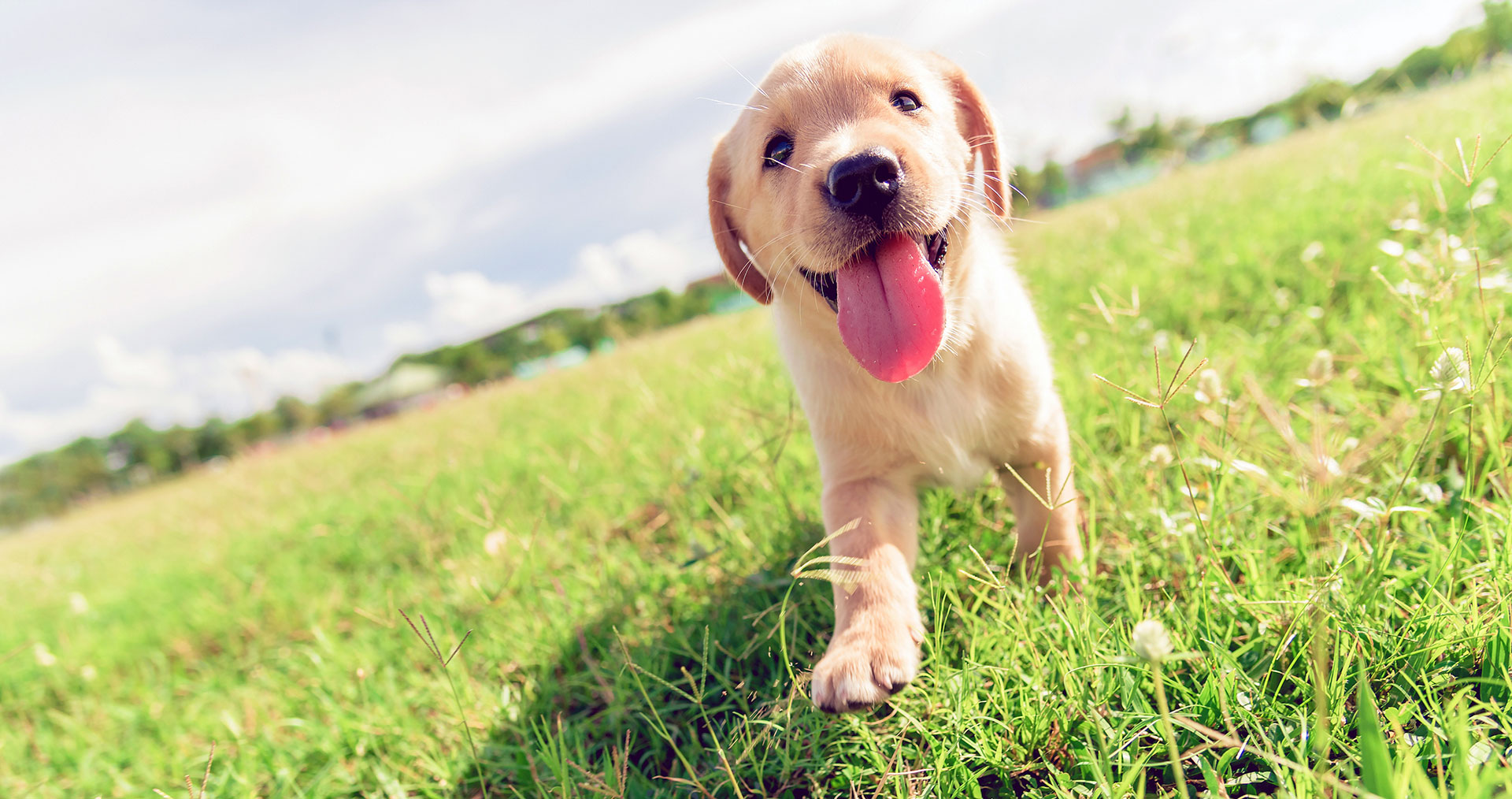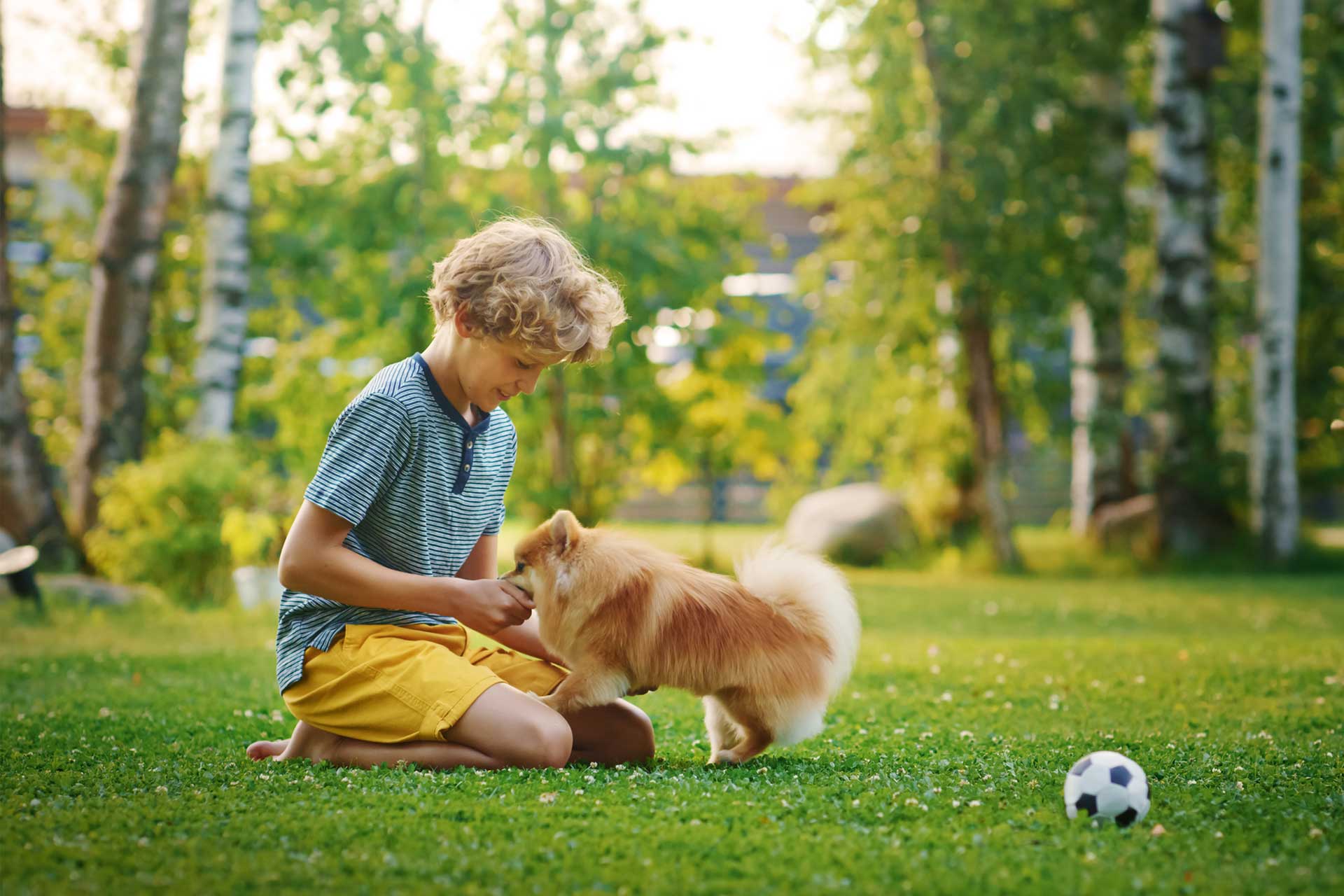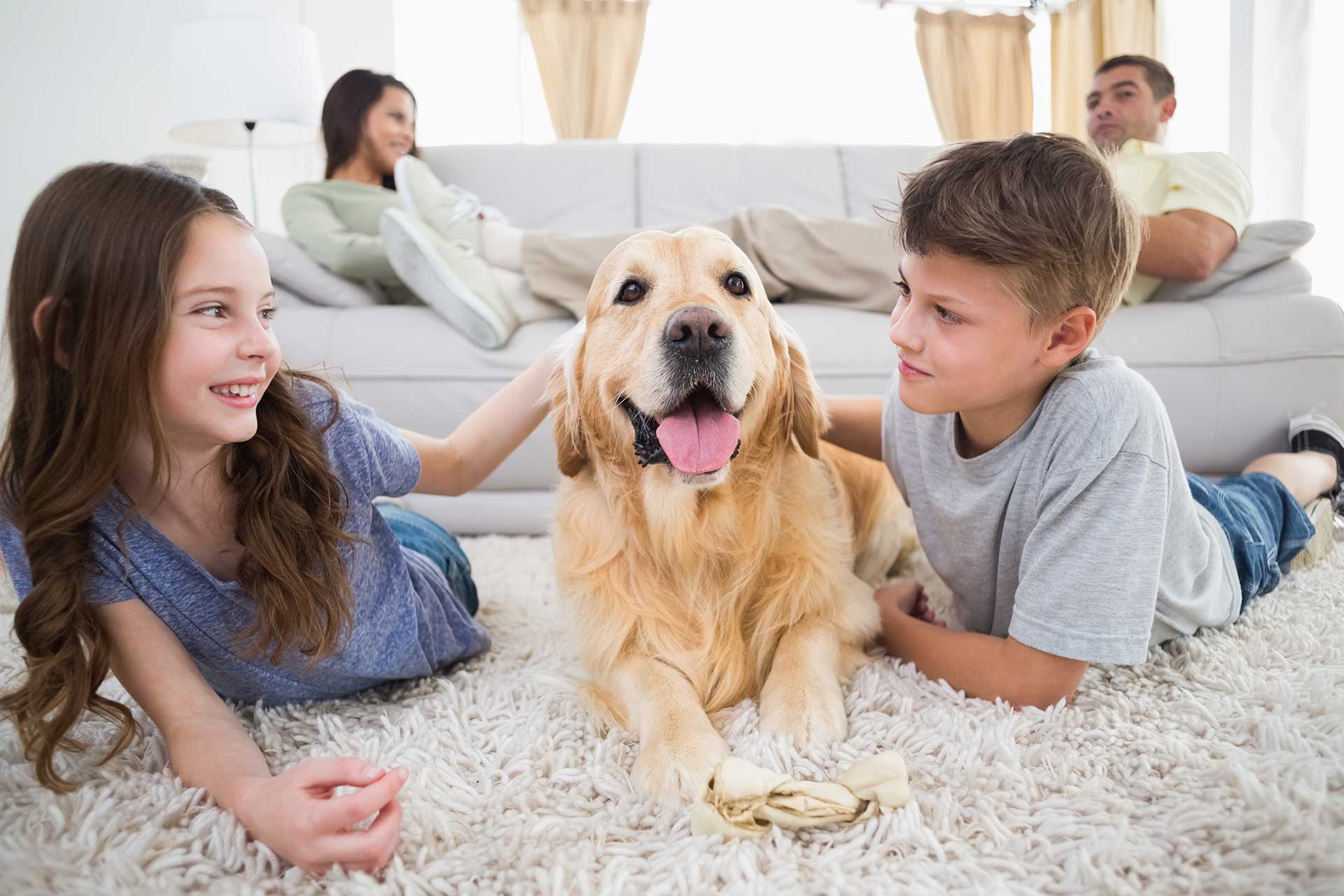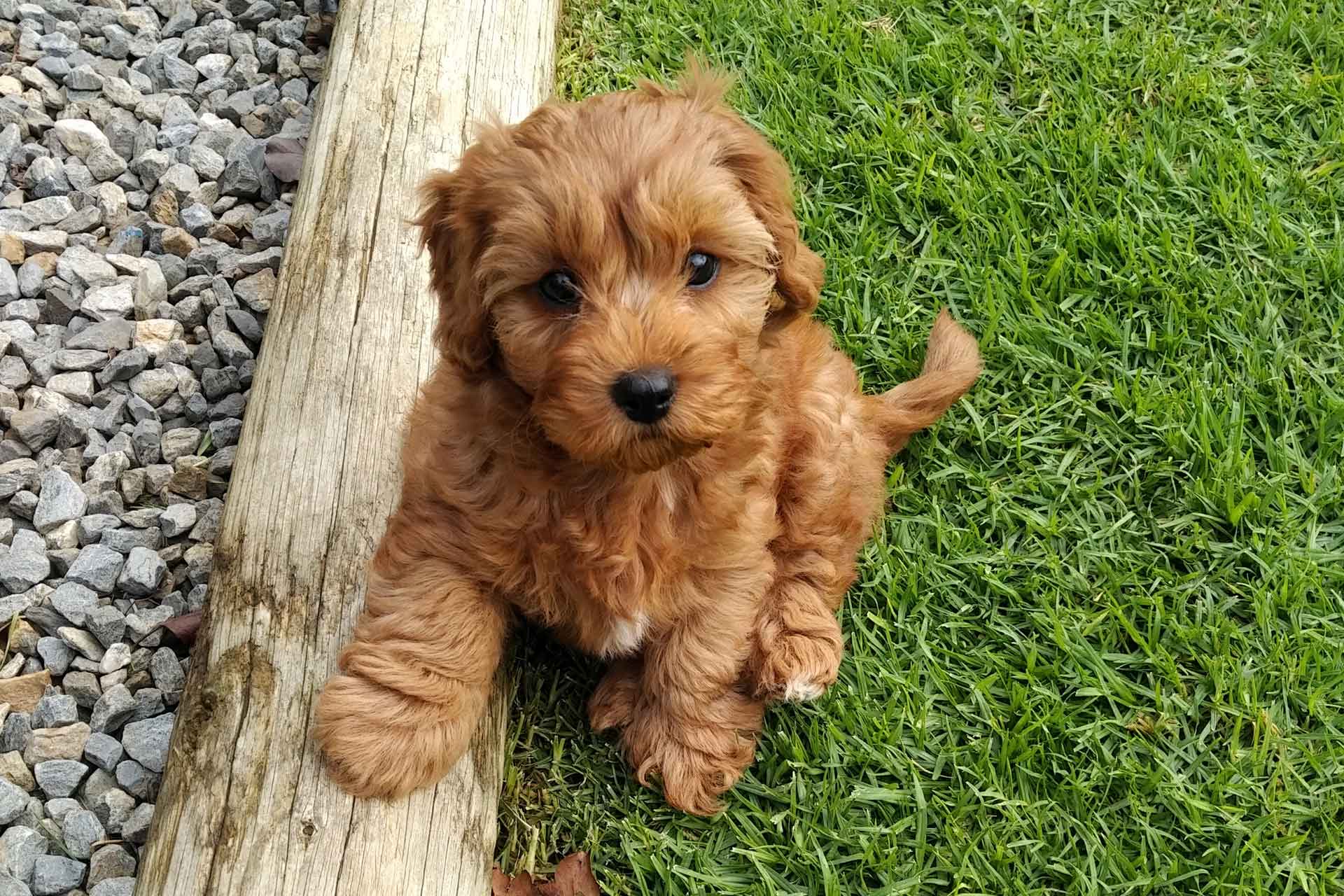Bringing a new puppy into your home is such an exciting experience, but it also comes with its fair share of challenges. Puppies are full of energy and curiosity, and while their enthusiasm is adorable, it can sometimes lead to behaviour problems.
In this article, we’ll explore common behaviour problems and provide practical solutions to help you raise a well-behaved and happy pup.
Going to the toilet inside
Toilet training can be a challenge, but consistency is key. Choose a designated spot and take your puppy there after playing, sleeping, eating and drinking. Use a command like “toilet” or “wee wee”, and reward them with a treat.
You’ll soon recognise the signs that they need to go, such as heading for the door, circling or squatting. Accidents are part of the learning process; clean up thoroughly to remove any lingering odours that might attract them back to the same spot and start again. Remember, puppies learn at different speeds, so be patient.
Biting and mouthing
Puppies explore with their mouths, but their sharp teeth can cause some damage. This behaviour is normal as they learn to play with each other and interact with humans, and they’ll grow out of it once they realise it won’t be rewarded.
To discourage this behaviour, try the following:
- Stand still and don’t give them attention until they settle down.
- Say ‘ouch’ in a high-pitch voice and ignore them for 15 seconds.
- Redirect them to play with a chew toy instead of nipping you.
Destructive chewing
Puppies love to chew for several reasons. It’s a way to soothe their teething discomfort, explore their surroundings and keep their minds active and engaged. Unfortunately, chewing can be destructive and damage your furniture and belongings. But the good news is this behaviour doesn’t last long. Try the following tips:
- Provide a variety of puppy-safe chew toys to keep them engaged.
- Puppy-proof your home by keeping valuable or dangerous items out of reach.
- Supervise your puppy during playtime to redirect them when they start chewing on something they shouldn’t.
- When you can’t supervise them, keep your puppy in a crate, a playpen or confined to an area where less destruction can be caused.
Barking and whining
Puppies bark and whine to communicate, which is normal behaviour. However, if barking becomes excessive, it can be a sign something is wrong. It’s important to understand the underlying cause so you can address it. Puppies often bark to express excitement, boredom, and anxiety, seek attention, alert you to something and respond to other dogs. Follow these tips to curve excessive barking:
- Ensure your puppy gets plenty of physical exercise.
- Provide mental stimulation with puzzle toys to prevent boredom.
- Teach commands like “quiet” or “enough”.
- Reward your puppy when they stop barking on command.
- Gradually expose your pup to barking triggers like visitors or other dogs and reward them for calm behaviour.
Jumping up
Puppies often jump up to get attention, and you can stop this behaviour by teaching them a more polite greeting. When your puppy tries to jump, turn your back and ignore them. When they have all four paws on the ground, offer praise and treats. Consistency is key – make sure all family members follow this approach. Using the “sit” command is also effective, as it redirects their energy into a more desirable behaviour. Over time, your puppy will learn that sitting politely gets them attention, making jumping up less appealing.
Pulling on the lead
Puppies pull on the lead because they’re full of energy and lack proper walking manners. To address this issue:
- Stop walking when they pull and reward them when they return to your side.
- Use a consistent command like “heel” to reinforce the desired behaviour.
- Practice short training sessions and gradually increase the duration of your walks as your puppy becomes more accustomed to walking politely.
Not coming when called
To tackle this issue, start with basic recall training in a controlled environment with minimal distractions, like your backyard. Use a consistent recall command like “come” and reward your puppy with their favourite treats when they respond. Gradually increase the distance and level of difficulty by practising in different locations and around distractions. Patience and persistence are key to achieving a reliable recall.
Raising a well-behaved puppy requires patience, consistency and positive reinforcement. While these common behaviour problems may test you, addressing them early can lead to a well-adjusted and happy adult dog. For more advice, contact your vet. They can give you tips to handle a particular behaviour or recommend a suitable trainer.






